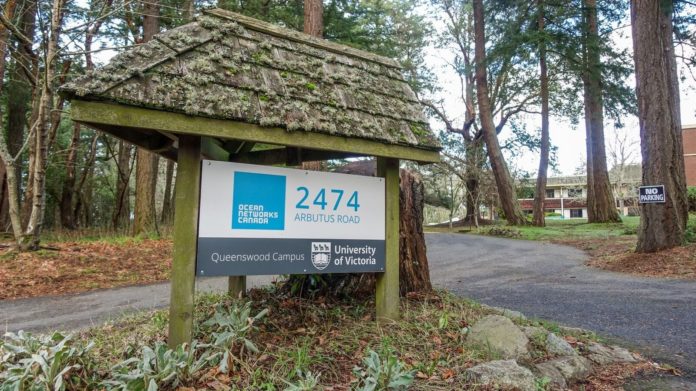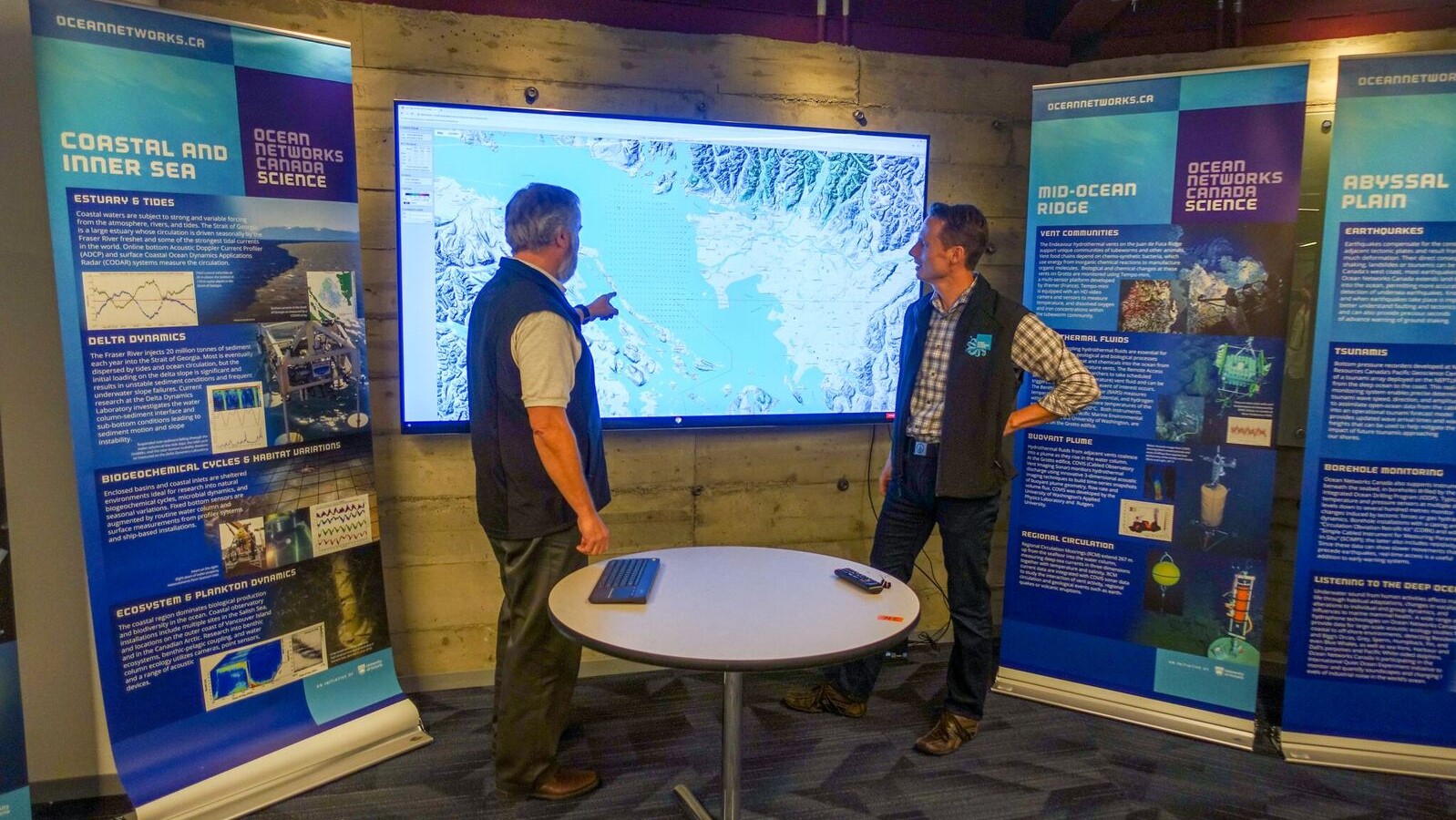A new centre for research into sustainable ocean management and climate change has opened on the University of Victoria campus.
The Ocean-Climate Building received $9.5 million in total funding, coming from the University of Victoria ($850,000) and both the B.C. ($5.15 million) and federal governments ($3.5 million).
Located in the Queenswood area of campus, the building will centralize the 200 staff, researchers, and students behind Ocean Networks Canada (ONC) who were previously located in separate buildings. By uniting these researchers under one roof, the new centre will foster interdisciplinary collaborations and innovation in some of our most pressing environmental challenges.
As the original stewards of the province, First Nations groups will play an essential role in the OCB’s environmental protection efforts. The UN Declaration on the Rights of Indigenous Peoples mandates that states recognize the importance of environmental protection as part of the reconciliation process.
Orchestrating the eyes and ears of Canadian oceans
The role of the ONC is to monitor ocean activity in the Arctic and on the east and west coasts by harvesting data via underwater networks. Seismic activity, climate change, conservationism, and navigation are some of the key areas they research.
Real-time scientific data is available free of charge to industry, governments, other scientists and communities. Examples of their beneficiaries include maritime emergency response units who have access to vital info on sea-surface currents, and the ONC’s acoustic instruments help to assess the impact of noise pollution on endangered species like killer whales.
ONC president, Kate Moran, commented that physically uniting the interdisciplinary team will reap exponential rewards: “Where disciplines interact, innovation explodes.”
A previous example of this interdisciplinary prowess was the creation of Canada’s first earthquake early-warning system, developed by a team of seismologists, engineers, and social scientists.
Representing the federal government at the opening ceremony, Johnathan Wilkinson announced a separate $12.6-million package over four years for the ONC.
The funding will go to multiple projects, but most noteworthy is the monitoring of factors involved in the endangerment of killer whales. As of January 2019, only 74 Southern Resident Killer Whales remain.
“There aren’t that many of the whales left, and as we know from reports just a couple of weeks ago there are some that are not in great health, largely because they’re not feeding enough,” said Wilkinson.
Noise from human maritime activity interferes with whales in numerous ways, including their ability to hunt. A recent study suggests that the frequencies of ships overlap with those emitted by the whales during communication.
Developing a thorough understanding of how noise affects the whales and exploring what solutions might exist to facilitate coexistence with humans is a priority for the ONC.
21st-century careers in a 21st-century economy
The new 30,000-square-foot facility received major upgrades such as fibre optic networks, seismic upgrades, and customizable, multi-functional workstations.
These workstations are based on a “flexible interior wall system to create large, collaborative workspaces for interdisciplinary work as well as individual offices,” according to the UVic press release.
The Ocean-Climate Building was created out of a repurposed residential care home that used to be run by the Sisters of St Ann. UVic purchased the lot in 2010 as part of its vision for expansion over the coming decades.
BC’s Minister of Advanced Education, Skills, and Training, Melanie Mark, commented that “the new Ocean-Climate Building is preparing for 21st-century careers in a diverse, strong, sustainable 21st-century economy.”
“By working together, students, researchers and businesses, along with Indigenous nations play a vital role in protecting our environment,” added Mark. “Research produced at UVic will improve our quality of life, help B.C. rise to the challenge of climate change and support our plan for a better, cleaner future.”






































